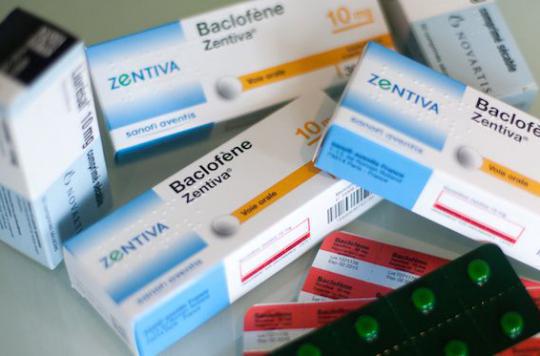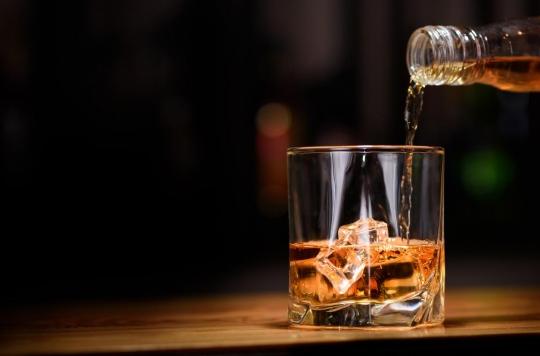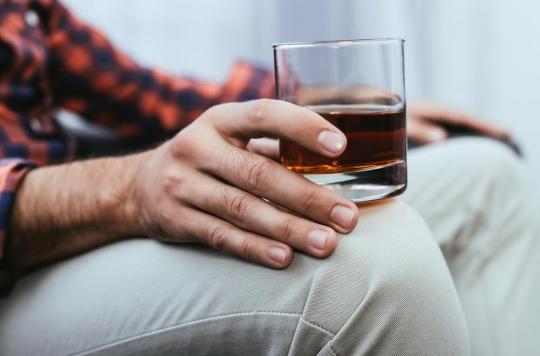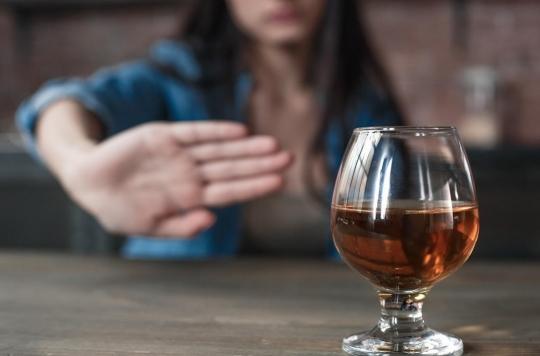Baclofen helps achieve abstinence in alcohol dependent patients. But this treatment also helps to regain responsible consumption.

Prescribed to treat certain alcohol dependencies since March 2014, baclofen delivers its first results. Data from the BACLAD clinical trial, conducted in Germany, appeared in the journal European Neuropsychopharmacology. The results of the two ongoing French trials are still awaited, but this initial work is hopeful.
42% abstainers
Baclofen is a centrally acting muscle relaxant which benefits, in France, from a Temporary Recommendation for Use (RTU) in alcohol dependence. It is therefore the subject of clinical trials to assess its effectiveness in this indication. Two of them are carried out in France, Bacloville and Alpadir.
While awaiting the French results, those of the German BACLAD trial are already arousing the optimism of specialists. Carried out double-blind against placebo in two groups of 28 patients, the trial evaluated doses ranging from 30 to 270 mg per day. Baclofen resulted in 42.9% abstinence, compared to 14.3% in the placebo group.
“The results of BACLAD are in favor of baclofen and confirm with the highest level of evidence the observations already made by all those who know the effect of baclofen and remain independent of any links of interest with the pharmaceutical industry that may guide their judgment ”, commented in a joint press release by several specialists, including psychiatrist Bernard de Beaurepaire, and members of associations (1).
Similar results in France
The trial also showed that in treated patients, the drug can regain responsible consumption with a limited number of side effects. “Abstinence is no longer an end in itself. The objective is to regain a normal and free relationship with alcohol, ”conclude the signatories of the press release.
In France, the success of baclofen is still limited. While the number of French people having problems with alcohol is estimated at 5 million, the portal RTUBaclofen has only 5,000 registered, according to the latest data from the Health Insurance. However, they did confirm the effectiveness of the treatment: 46% of patients whose treatment is in progress are abstinent – figures similar to those of the BACLAD trial. Baclofen also helped reduce the craving for alcohol.
(1) Dr Renaud de Beaurepaire – Psychiatrist at Paul-Guirard hospital (Villejuif), Mr. Samuel Blaise, President of the Olivier Ameisen association, Mr. Yves Brasey, Vice-President of the Baclofène association, Dr Pascal Gache , President of the Aubes association, Prof. Bernard Granger, Head of the psychiatry and addictology unit at Tarnier hospital (Paris), Mrs. Sylvie Imbert, President of the Baclofène association, Prof. Philippe Jaury, addictologist and coordinator de Bacloville, Dr Bernard Joussaume, General practitioner, co-founder of the Aubes association, Dr Patrick de la Selle, General practitioner, President of the Resab association.
.









-1610376092.jpg)
-1609843820.jpg)

-1605792681.jpg)

